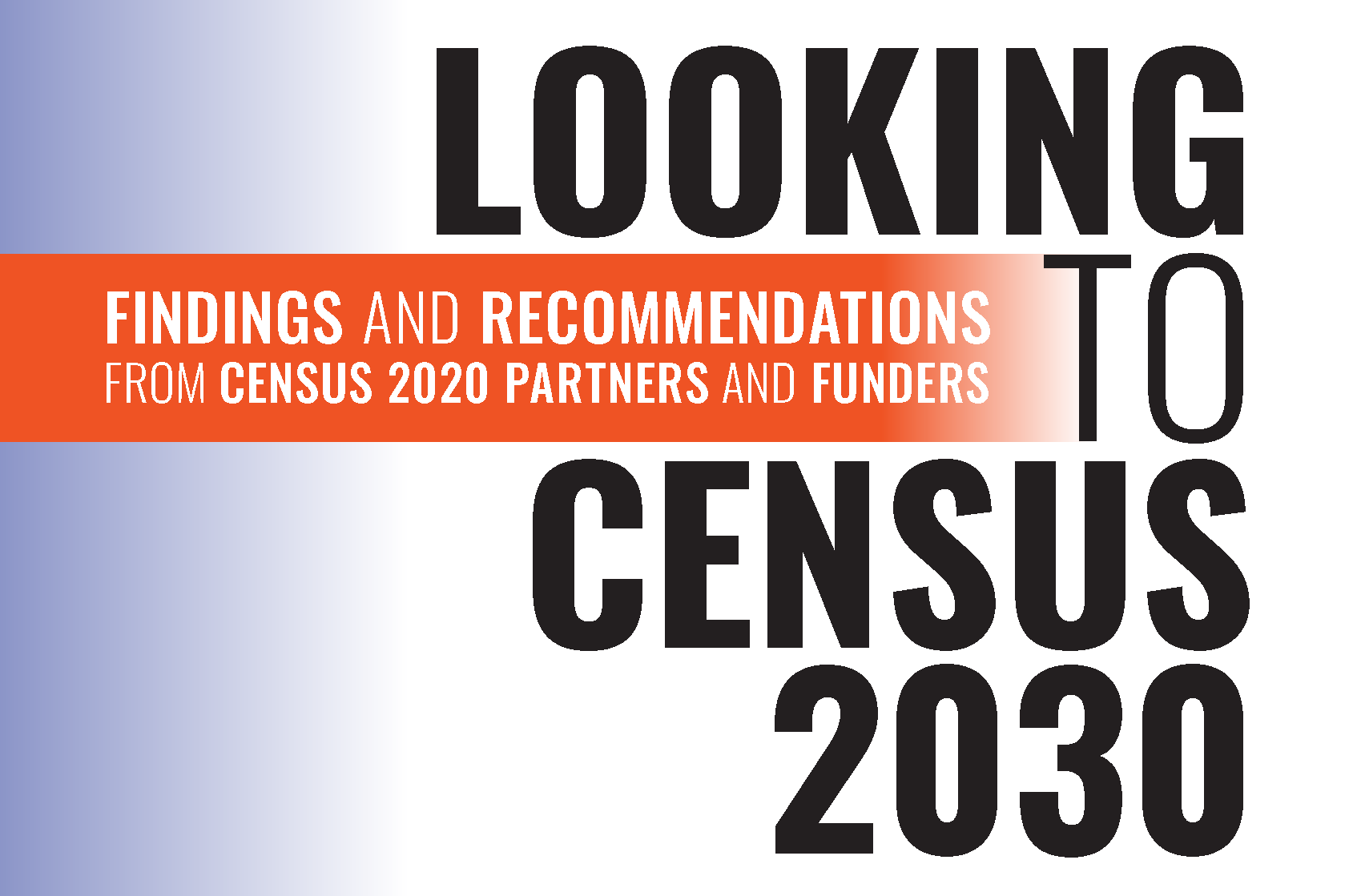
Looking to Census 2030: Findings and Recommendations from Census 2020 Partners and Funders is a compilation of findings and over 100 recommendations from funders, philanthropy serving organizations, community-based organizations and other stakeholders, including complete count committees from across the country, who worked with the Democracy Funders Census Subgroup and the Census Counts Campaign housed at the Leadership Conference Education Fund. The analysis includes very specific observations, as well as suggestions for broad, and in some cases, very significant shifts in the way the Bureau has approached its mission over the past three censuses. Commissioned by the Democracy Funders Collaborative Census Subgroup and written by Karen K. Narasaki and Tim Lim, the hope is that the U.S. Census Bureau, Department of Commerce, Congress, and the Administration seriously consider the findings and lessons learned as planning begins for Census 2030 and the Bureau continues to refine the related American Community Survey. The Democracy Funders Census Subgroup is a collaborative of about a dozen national and regional foundations that came together in 2015 to develop and fund a plan to support efforts to achieve a fair and accurate 2020 Census, with a focus especially on communities historically undercounted and most at risk of being undercounted in 2020. These communities include Blacks, Hispanics, Native Americans, Asian Americans, Arab Americans, immigrants, low-income households, people with disabilities, young children under the age of 5, people who have limited English proficiency, and LGBTQ+ individuals.
Click here to read the executive summary of Looking to Census 2030.
Click here to download the full report: Looking to Census 2030
You can also navigate to specific sections of the case with the following links:
- Executive Summary
- Census Content and Rules
- Census Preparations
- Language Assistance
- Partnership Programs
- Communications Campaign
- Peak Census Operations
- Additional Research Suggestions To Inform and Support the 2030 Census
Looking to Census 2030: Findings and Recommendations from Census 2020 Partners and Funders is unique in that the focus is on evaluating the Census Bureau’s planning and operations rather than on evaluating the work of philanthropy or the field. It is complementary to a broader series to assess the work undertaken by the philanthropic and nonprofit community to promote a fair and accurate 2020 census. This includes qualitative and quantitative research by ORS Impact and Barsoum Policy Consulting, vignettes describing the census activities undertaken in each of the states, lessons learned from digital efforts, and more. These reports are hosted on the Funders’ Committee for Civic Participation website. Each was commissioned by the Democracy Funders Collaborative Census Subgroup as an independent voice describing the work that was undertaken related to the 2020 census.